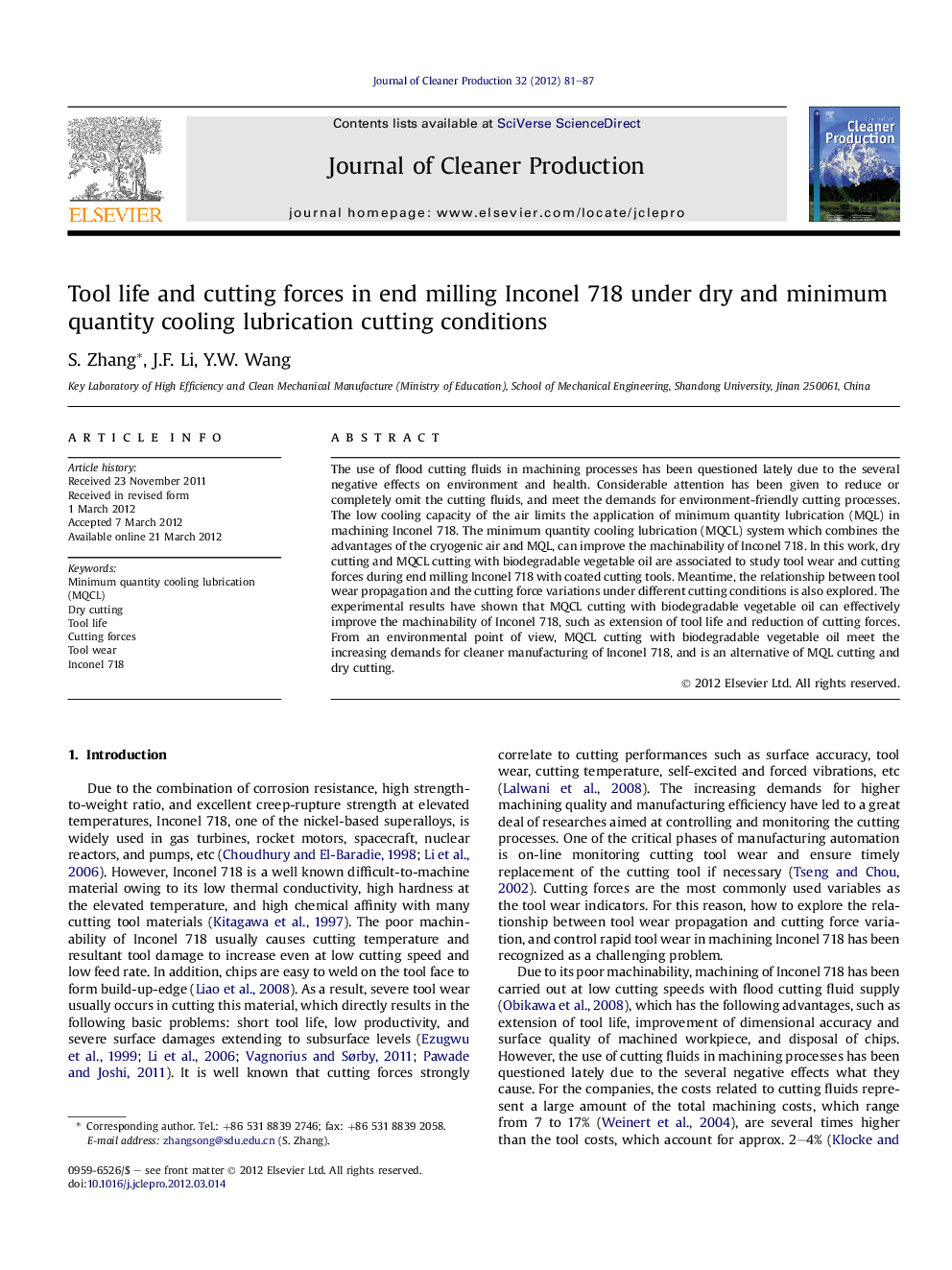| Article ID | Journal | Published Year | Pages | File Type |
|---|---|---|---|---|
| 8108155 | Journal of Cleaner Production | 2012 | 7 Pages |
Abstract
The use of flood cutting fluids in machining processes has been questioned lately due to the several negative effects on environment and health. Considerable attention has been given to reduce or completely omit the cutting fluids, and meet the demands for environment-friendly cutting processes. The low cooling capacity of the air limits the application of minimum quantity lubrication (MQL) in machining Inconel 718. The minimum quantity cooling lubrication (MQCL) system which combines the advantages of the cryogenic air and MQL, can improve the machinability of Inconel 718. In this work, dry cutting and MQCL cutting with biodegradable vegetable oil are associated to study tool wear and cutting forces during end milling Inconel 718 with coated cutting tools. Meantime, the relationship between tool wear propagation and the cutting force variations under different cutting conditions is also explored. The experimental results have shown that MQCL cutting with biodegradable vegetable oil can effectively improve the machinability of Inconel 718, such as extension of tool life and reduction of cutting forces. From an environmental point of view, MQCL cutting with biodegradable vegetable oil meet the increasing demands for cleaner manufacturing of Inconel 718, and is an alternative of MQL cutting and dry cutting.
Related Topics
Physical Sciences and Engineering
Energy
Renewable Energy, Sustainability and the Environment
Authors
S. Zhang, J.F. Li, Y.W. Wang,
